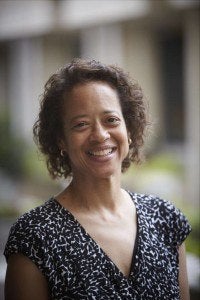
CARMON DAVIS, MPH ’94
PEDIATRICIAN, BOSTON CHILDREN’S HOSPITAL
Q: How has your MPH degree influenced your daily work as a doctor? And did studying the large social, political, and economic forces behind individual health make you more or less optimistic in your role as a clinician?
A: When I was at the School, my practicum was to assess the teen pregnancy issues at Cambridge Rindge and Latin High School’s health center. They wanted to expand their reproductive health services and to distribute a variety of contraceptives—which was very controversial from a school perspective, a city perspective, and a parent perspective. The practicum was to advocate for the health center. Using the tools we learned at the School, I and two other physicians made the argument that expanded reproductive health services would be beneficial in terms of the students’ physical health, mental health, and economic potential. The expanded services became policy.
Later, I worked in an urban inner-city practice at Boston Children’s Hospital. I had learned at the School how poverty shapes children’s health—not only the risk of malnutrition, but in not having safe places for children to exercise, obesity rates, and violence in the home. Today, I try to spend more time with my patients discussing issues besides their medical needs: how their environment affects them, how they’re doing in school. I understand more about what other factors are in my patients’ and their families’ lives. Sometimes when physicians are concerned that a patient is “noncompliant,” they may not understand all the forces that are impacting that family.
My MPH track also involved health communication. That’s something all physicians want to do better. I learned how to craft public service announcements and have utilized that in my practice to try to explain—one patient at a time—medical issues such as asthma, necessary immunizations, and violence risk. I learned how to speak to patients in a way they could understand.
The School gave me tools such as epidemiology and biostatistics. I learned how to critically review the literature. I appreciated the courses in health policy and disaster management.
As a physician, I am always hopeful. The MPH has made me more hopeful.







